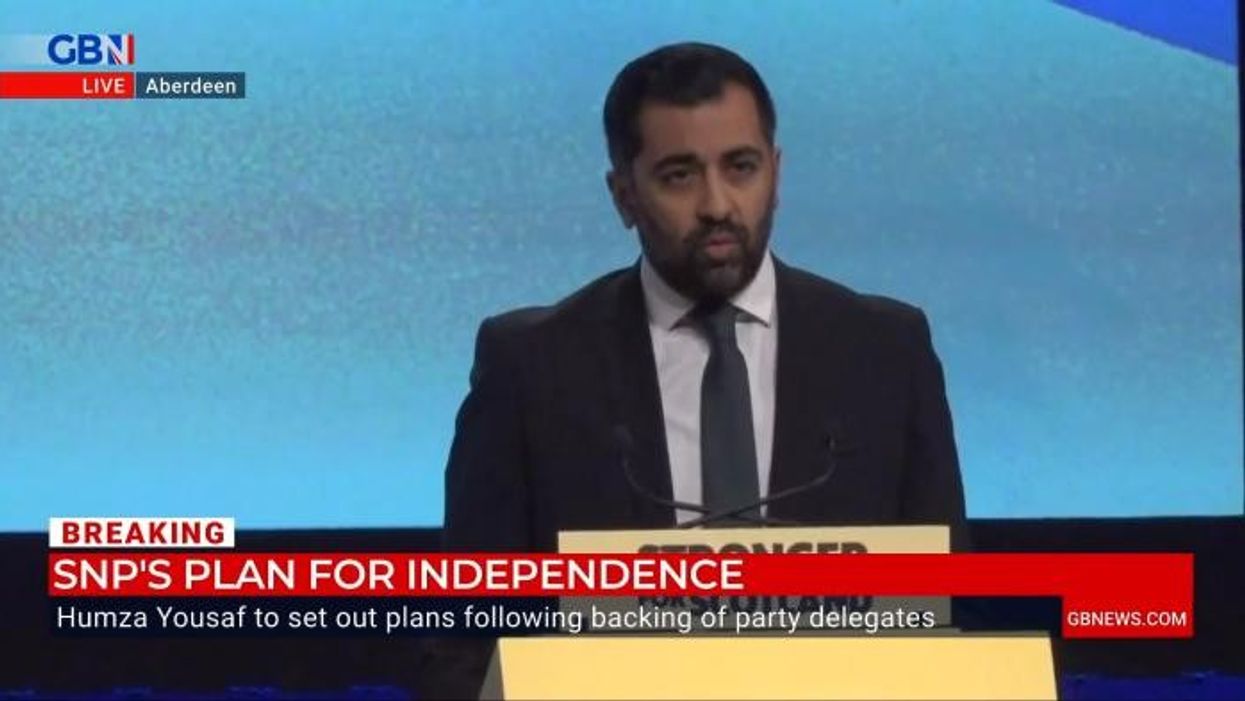'Appalling!' SNP slammed for being 'asleep at the wheel' as Scottish Government shamed by damning new data

Craig Hoy, Scottish Conservative chairman, blamed the latest figures on the SNP's independence 'obsession'
Don't Miss
Most Read
The SNP has been accused of being "asleep at the wheel" after new figures suggested there has been a drop in the amount of legislation passed by the Scottish Parliament.
New figures published by the Scottish Parliament Information Centre shows that the first 900 days of the current Holyrood session has seen just 19 bills passed.
This is the lowest on record, joint with the third session since devolution, when the SNP first came to power in 2007.
The first two sessions saw 27 bills passed.

The SNP has been accused of being "asleep at the wheel" after new figures suggested there has been a drop in the amount of legislation passed by the Scottish Parliament
|PA
The fourth session saw 24 bills passed, while the fifth saw 22 passed.
Craig Hoy, Scottish Conservative chairman, blamed the lack of progress on the SNP's independence "obsession".
He said: "The lack of legislative progress so far this session is appalling, but sadly it is what we’ve come to expect from this divided, distracted SNP-Green government.
"Since the last Holyrood election, we’ve had a stream of propaganda papers on separation and needless court challenges against the UK Government, from ministers governing in the nationalist interest rather than the national interest.
"Ministers are asleep at the wheel – this is unacceptable and must urgently change."
But the Scottish Government claimed that "numerous important pieces of legislation" have been passed in this session, such as bills providing extra financial support to carers and support for Scotland's pandemic recovery.
A spokesperson for the SNP added: "The most recent Programme for Government set out the Scottish Government’s intention to introduce 14 bills during the current parliamentary year.
"New primary legislation is just one of the many ways the Scottish Government continues to focus on the priorities of the people of Scotland.
"As the Deputy First Minister outlined in the 2024-25 Scottish Budget, resources are being targeted at those that need it most during this cost of living crisis.
"This includes a £6.3 billion investment in social security and more than £19.5 billion for health and social care for next year, alongside record funding for local authorities and frontline police and fire services.”
Earlier this month, the SNP lost its fight against Westminster over the party's controversial trans reforms.
The Court of Session in Edinburgh ruled that the UK Government acted lawfully when it blocked the gender reforms in Scotland, which the SNP attempted to introduce earlier this year.
The party attempted to challenge the Government's decision to block a law introduced in Scotland earlier this year, which would have made it easier for trans people across the border to change their legal gender.
It would have sped up the process of acquiring a gender recognition certificate (GRC), which is seen as an integral part of trans-inclusion.
The proposed reforms would remove the requirement for a medical diagnosis of gender dysphoria, allowing people to apply for a GRC as long as they have been living as the gender they identify with for three months.
This is a reduction from the current minimum of three years.
A total of 11 European countries have introduced similar reforms.
LATEST DEVELOPMENTS:
The plans would have allowed 16 and 17-year-olds to legally change their gender. But people under the age of 18 would have to be living as the gender they identify with for at least six months.
The Government blocked the legislation under Section 35 of the Scotland Act, which allows a UK secretary of state to stop a bill from getting royal assent if they have reasonable grounds to believe the law would have an adverse effect on legislation reserved to Westminster.
Westminster’s decision to block the bill from going for royal assent is the first time Section 35 has been used.











